Large TVs: sizes and top models
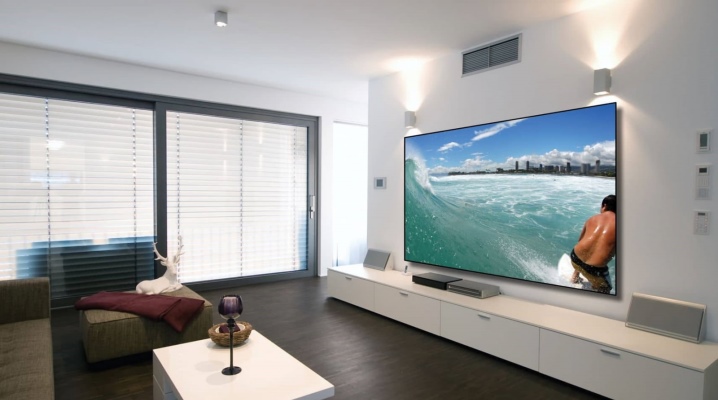
The border between large and extra-large screens is frozen at 60 inches. Such giants cannot be called popular, the demand today is for completely different sizes. The desire to have a large-scale TV with an extremely realistic image lurks in the soul of many, but they have to be content with smaller products, since the boundaries of housing do not allow, and the cost is incomparable with the possibilities. As a percentage, there are not so many large models, but they with dignity occupy their consumer niche.
Peculiarities
The size of the modern matrix tends to increase. More recently, a 55-inch TV was classified as a large, today it is considered a medium-sized product. Large displays include models with a diagonal of 60 inches or more. Their popularity is growing rapidly in China, the United States and Western Europe.
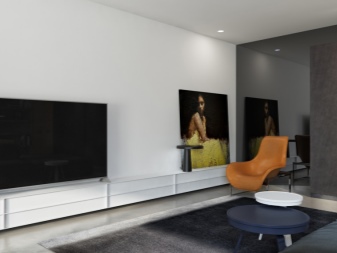
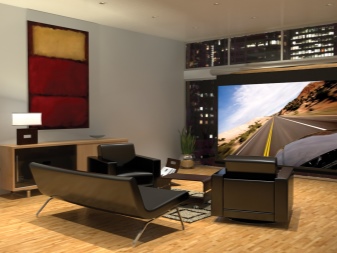
In our country, the classification according to the perception of large sizes has shifted in an increasing direction after the decline in prices for electronics with displays of 50-59 inches. Demand for TVs smaller than 49 inches has plummeted. Today, the domestic consumer has become noticeably more likely to pay attention to products with a display of more than 75 inches. A stable buying feature was noticed - 80% of the lucky ones who bought a new TV regretted not taking a model with a larger screen. The time is not far off when today's giants will become the norm in our homes.
When purchasing a large TV, you should know where and how to place it, what features it has, how long it will last, and whether the investment will pay off.
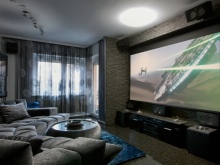
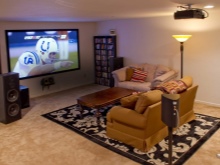
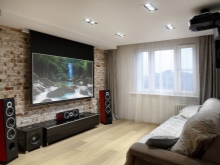
Location in space
Since the release of the first large TVs, the debate has not ceased about what the room should be for such a giant, whether the distance between the screen and the viewer affects human vision, whether a huge black display spoils the appearance of the interior.
Some consider the connection between TV and room size to be a myth. To understand that the connection is real, you just need to imagine the presence of a giant with a diagonal of 77 or 85 inches in a tiny Khrushchev-style room. It will take up the entire wall and will simply "destroy" the remaining space with its significance.
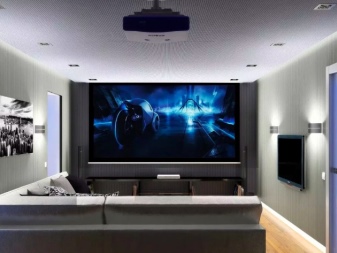
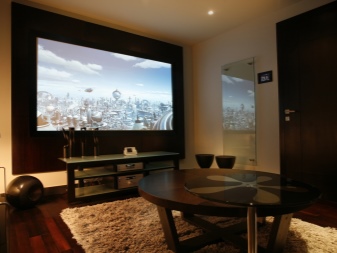
Even in the interiors of spacious rooms, designers do not like to introduce large TVs. The black screen turned off resembles a hole in a wall or a bottomless abyss. Electronics manufacturers are trying to solve this problem in a variety of ways. For example, Samsung Corporation has endowed some of its models with the Ambient Mode option - with its help, the display in sleep mode gives a predetermined picture. It can be a photograph or a work of art stylized to look like an interior.
The companies also offer beautiful decorative coasters that harmoniously introduce electronics into a room's design. Special mounts are available that make it possible to hang the giant display close to the wall, without a gap.
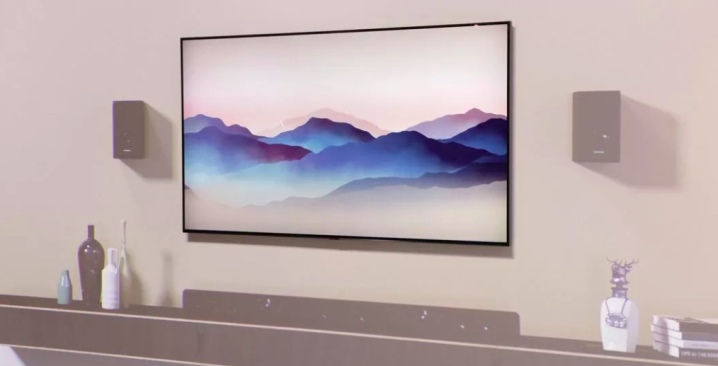
Effects on vision
There are standards that protect the health of citizens, which advise that the distance from the viewer to the screen must be equal to the numerical value of the diagonal multiplied by three. When you consider that one inch equals 2.54 cm, the distance to the TV with a display is 80 inches should be just over 6 meters... And this is already a serious footage for an apartment.
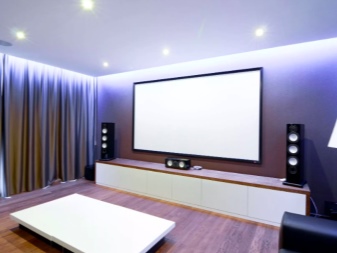
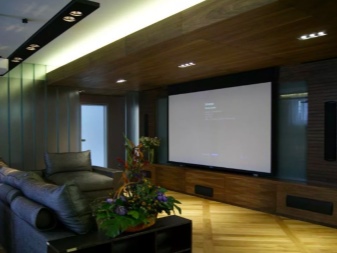
But there are some nuances that can reduce these numbers without harm to health. The improvement of modern technology, and more specifically, the high resolution of the matrix, helps to reduce the risks.The number of pixels per screen segment is increasing, making displays more and more secure. See how these changes take place:
- HD Ready resolution is 1366x768;
- Full HD resolution is 1920 x 1080;
- Ultra HD resolution is 3840x2160.
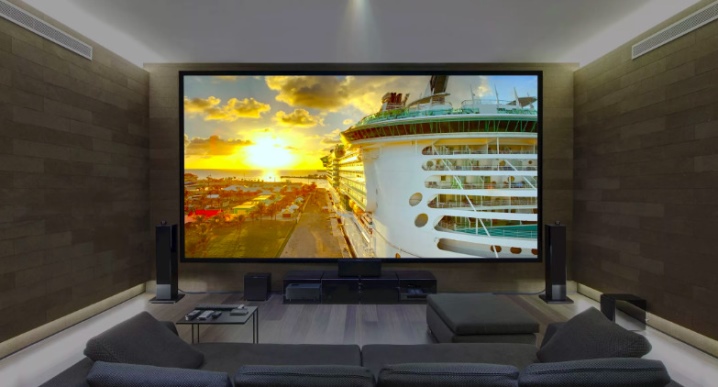
New TVs with 4K resolution are several times higher than the usual Full HD resolution. The more pixels, the sharper and clearer the picture, and the safer it is for eyesight. Today, models with a resolution of 8K are already being released, but, unfortunately, there is still little content on them.
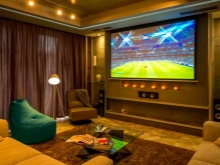
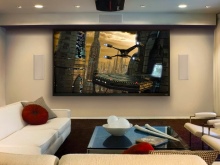
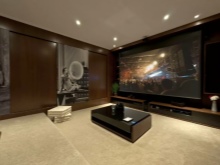
Advantages and disadvantages
Assessing the presence of a large TV in an apartment objectively, one should note its both positive and negative qualities. Let's start with the merits.
- Such large electronics, no doubt, raises the status of the owner in the eyes of friends and neighbors.
- Large diagonal TVs have a clear picture and bright color.
- The lifelike picture of modern large TVs produces the effect of presence and allows you to "dissolve" in the plot of TV programs.
- With a giant screen you can arrange your own cinema at home... Moreover, "smart technology" makes it possible to go to the Internet and choose the movie you like to watch.
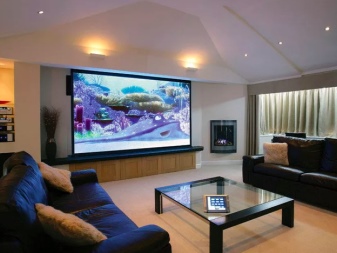
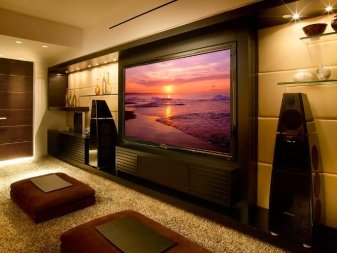
Disadvantages:
- too high contrast and color saturation;
- pixels are visible at close range;
- a large TV is not suitable for any space;
- Due to the sensitivity of the display, such electronics cannot be transported without a box;
- the high cost will not pay off, since new innovations will make the prestigious giant obsolete in a few years.
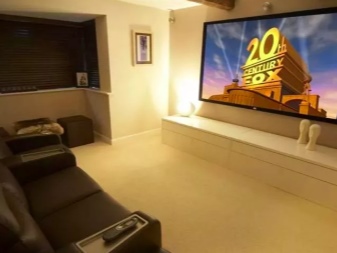
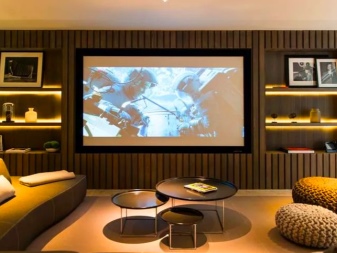
The largest models in the world
Rankings of the best large TVs on sale are compiled annually. You won't surprise anyone with them. And we propose to talk about the largest TVs in the world to find out how big they are, what characteristics they have, and who makes them.
Technovision
In 2007, Technovision produced the largest TV in the world. At that time, he had a diagonal of 205 inches and was entered in the Guinness Book of Records. The liquid crystal giant was 4.55 m long and 2.56 m high. The screen was backlit by 750 thousand LEDs. The cost of the record holder was 400,000 euros.
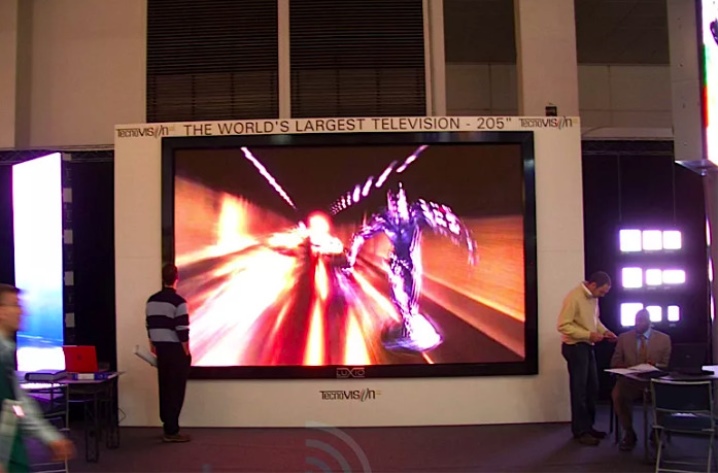
C SEED 201
In 2011, the Austrian corporation C SEED Entertainment Systems unveiled its giant TV, the diagonal of which was slightly smaller than its predecessor Technovision (201 inches), but in terms of technical characteristics it was much ahead of it.
The model was endowed with waterproof properties, intended for outdoor use and was designed for different weather conditions. It had its own "underground bunker", from which it drove out and unfolded in front of the amazed audience, turning from seven large segments into a single giant screen. Sound came from 12 speakers (250W) and three subwoofers (700W). The screen consisted of 725 thousand LEDs and reproduced more than 4 trillion shades. Using a fiber optic cable, the TV was connected to the computer.
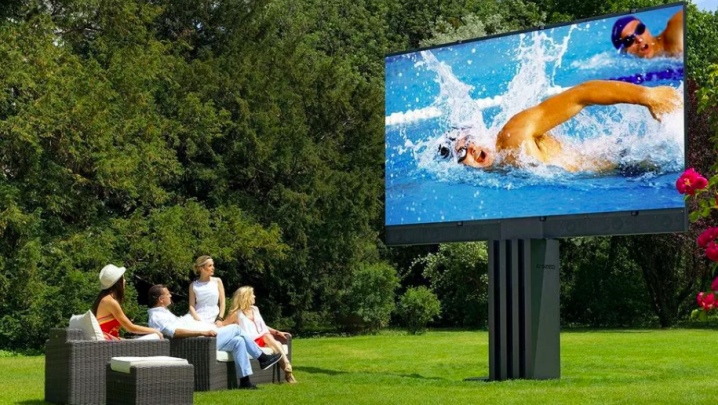
C SEED 262
The Austrians continued to produce giants and produced the largest 4K TV ever. Its diagonal is 262 inches (665 cm). The parameters of the new equipment are 614 cm long, 272 cm wide, and weigh 800 kg. The cost of the model is $ 540,000.
The TV has a matrix type LED, display resolution - 4096x1716 pixels, viewing angle - 160 degrees, contains 10 built-in speakers (9.1 format). The switched off screen is automatically covered by a decorative fabric picture, helping the electronics to integrate harmoniously into the interior.
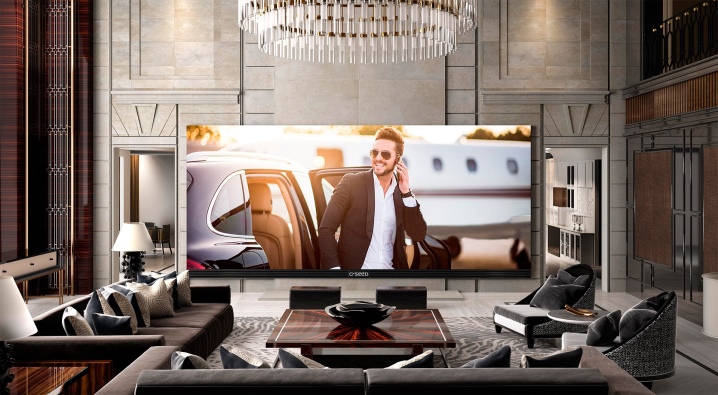
Titan zeus
This giant is owned by Titan Screens from the UK. Today it is the largest TV in the world.... The diagonal of the screen is 320 inches or 939 cm. The large-scale electronics consists of a series of huge screens, expertly interconnected. The company did not publish its characteristics, but some data of the miracle technology are known:
- length - 8 m;
- height - 5 m;
- weight - about 1000 kg;
- cost 1,600,000 dollars.
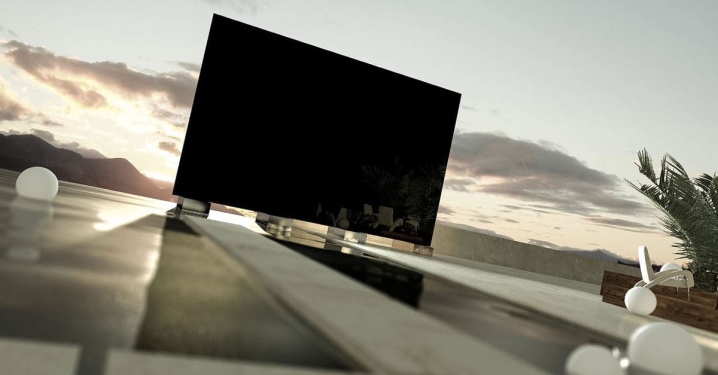
The TV is assembled by hand, first the individual modules are assembled, then they are connected in a large hangar. The company has produced four such models, two of which have already found their customers. The equipment was delivered to them in a specially equipped vehicle. The third TV set will be installed in Cannes on a building prepared for installation. The fate of the fourth is still unknown. The company has not yet announced plans to produce such products in large quantities.
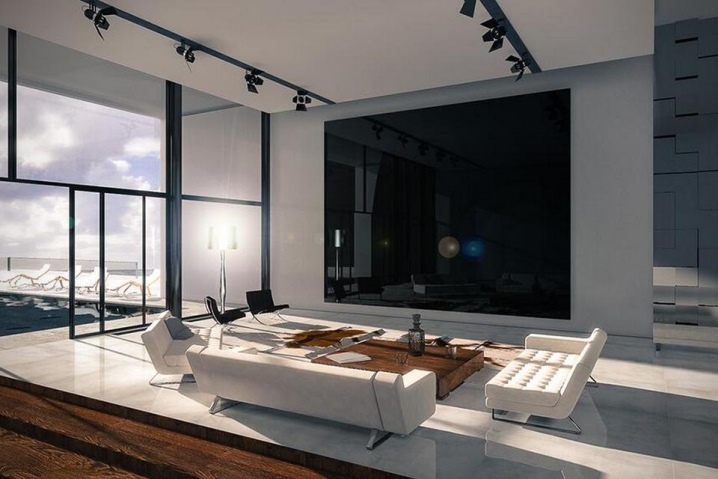
Criterias of choice
Before you go shopping for a large TV, you need to find a place for it in the house and measure it carefully.
It is also important to decide on a budget in advance. The giants have a number of options that may not be needed in practice, which means that you can choose a model easier and cheaper.
It is necessary to study the technical components of the proposed electronics and check it in operation, evaluate the image quality.
When buying a large TV, you need to know that image transmission technology can be different.
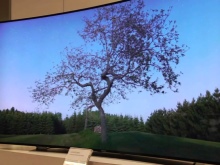
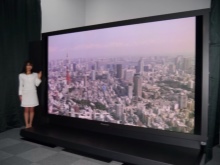
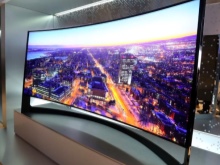
LED
Liquid crystal screen. The name LED is an abbreviation for English and means "light-emitting diode"... Today, 90% of all TVs sold are in this category. This technique is subtle, light with rich deep shades. The disadvantages include poor contrast and a small viewing angle, which gives glare, if you look at the picture from the side.
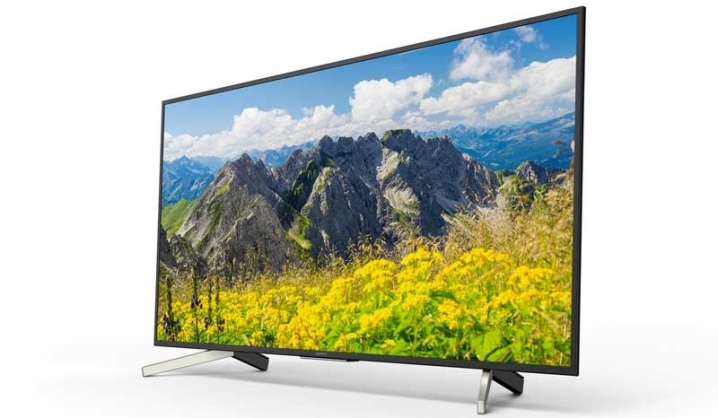
OLED
The next generation of thin bezel-less TVs. The name OLED is an abbreviation for English and means organic light-emitting diode. The capabilities of the screen are 4 times higher than the usual Full HD resolution. Each pixel of OLEDs lights up and goes out separately, while the LED screen is endowed with a white backlight and looks more like a huge transparency. It turns out that OLED pixels independently emit light, which allows displays to have truly deep blacks without shades of gray or blue, and the image is bright. Televisions are endowed with a good viewing angle.
The disadvantages include the too high cost of the product.
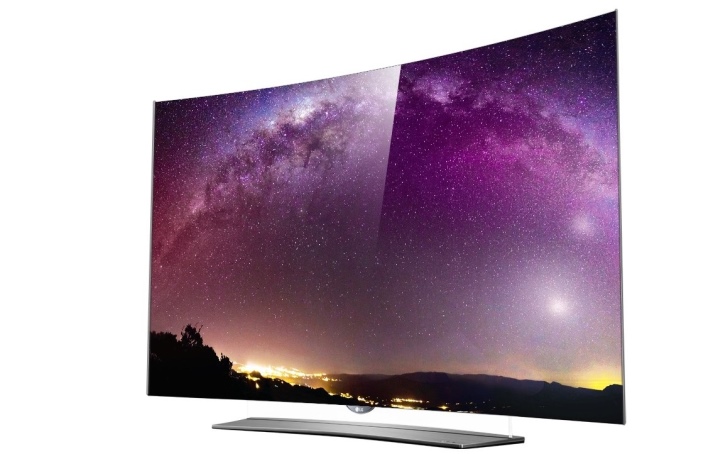
Resolution diagonal
Most large TVs support the familiar format Full HD. Today you can already find on sale models with a new resolution. Ultra HD (4K)which gives you super-sharp picture and amazing color depth.
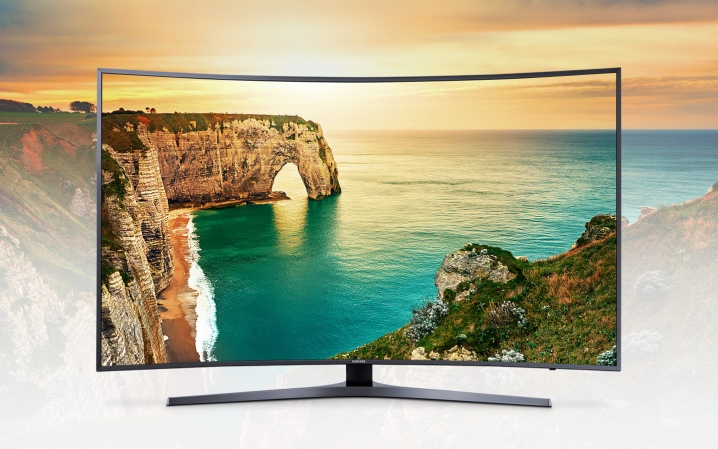
Video format
Large TVs support the format High Dynamic Range (HDR), which in translation means - High dynamic range. HDR technology enables work with brightness in different areas individually, in one place to enhance, in another - to extinguish... Such perspectives make the image as realistic as possible, allow you to see the smallest details.
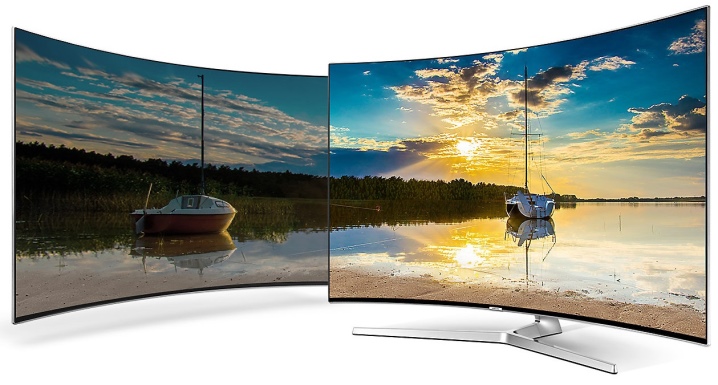
3D
3D electronics provide a real volumetric image. To use it, you need special glasses and content in the same format, otherwise the equipment will work like a regular TV. The matrix of such models pleases - 120 Hz. Today technologies do not stand still, the real volume of the image is given by 4K, 8K TVs. Due to the high cost of 3D technology, it is rarely used in TVs of the latest generations, which means that content will decline over time. Everyone decides for himself whether it is worth choosing such a technique.
Those who are allowed material opportunities, in pursuit of spectacular images, acquire models with 3D + 4K technologies.
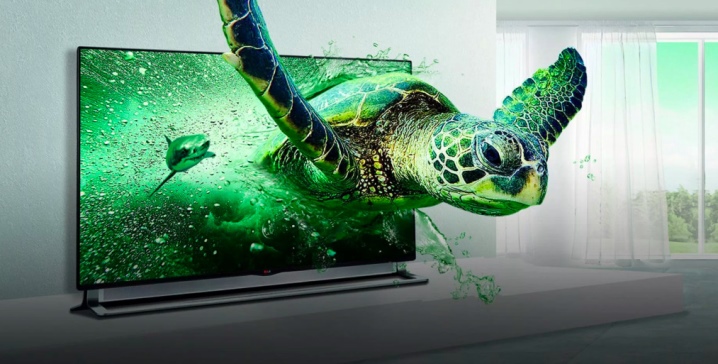
Screen format
Some buyers are confused about which display is better - straight or curved. The curved screen offers a larger picture capacity, but certain conditions are met: the movie should be watched directly in the center in front of the screen, and the diagonal size must be greater than 50 inches. Large TVs meet these requirements. Having made a choice in favor of a curved screen, you should take care of the stand, since you cannot hang it on the wall.
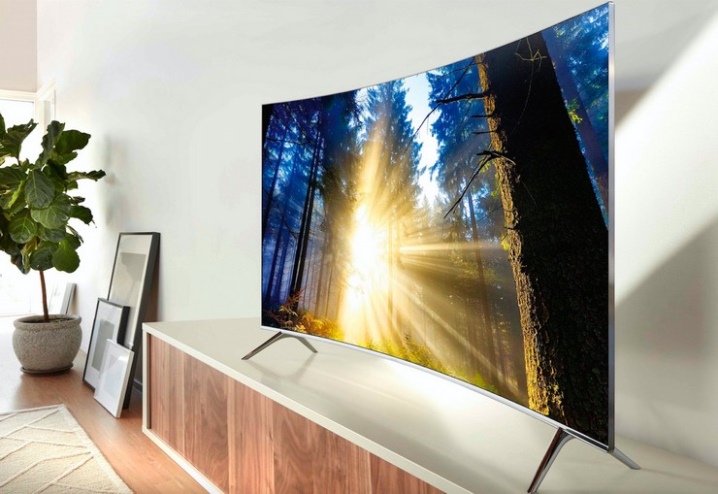
Smart TV
Everyone knows the difference between a smartphone and a simple mobile phone, and Smart TVs differ from other models. Smart device resembles a computer, allows you to access the Internet and watch your favorite movies, download games, communicate on social networks.
The program can accept voice commands.
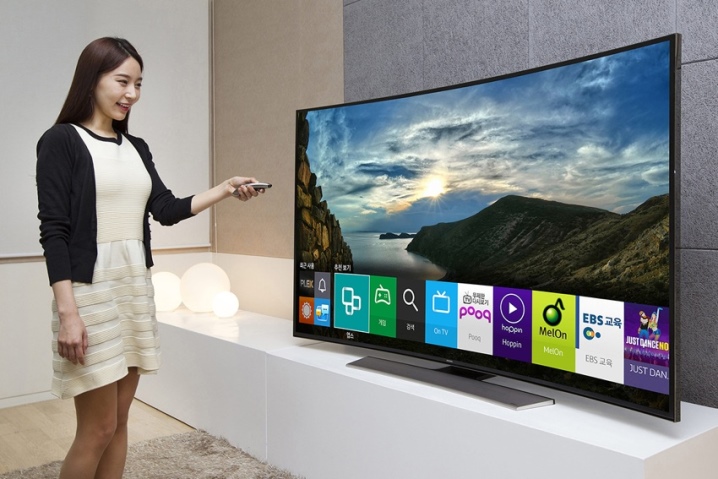
Sound
Large, ultra-thin displays are designed for perfect pictures and are not designed for the same quality sound - the minimum thickness of a TV simply cannot provide it. Models are often sold complete with an external subwoofer.
Electronics manufacturers are working on this issue, and the sound quality is gradually increasing... If the dynamics of sound is important, you should look for models with a subwoofer built into the TV, as well as with a Dolby Digital system.
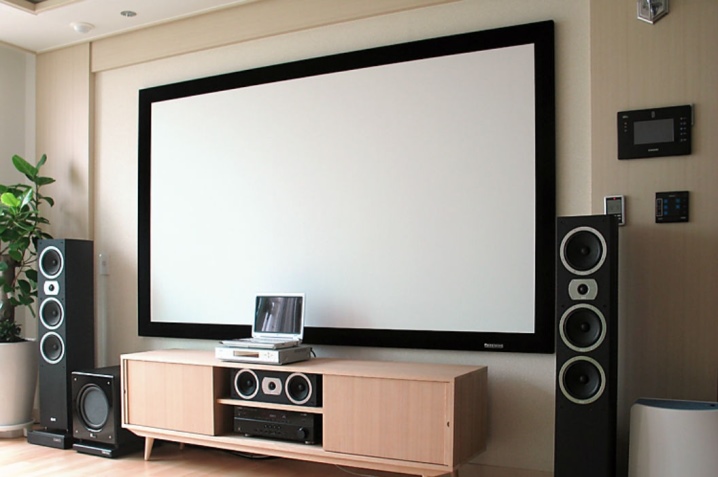
Examples in the interior
Integrating a large TV into an interior is not easy, but the designers manage to do it. Here are some ideas for beautiful environments involving large electronics:
- the scale of the TV is successfully complemented by the panorama of a modern city;
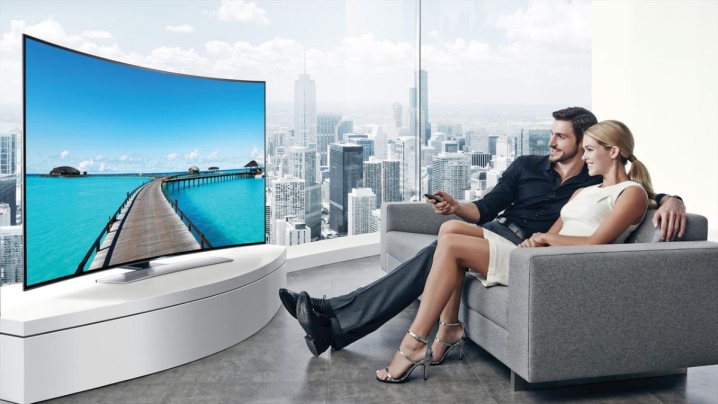
- large displays go well with urban 3D wallpapers;
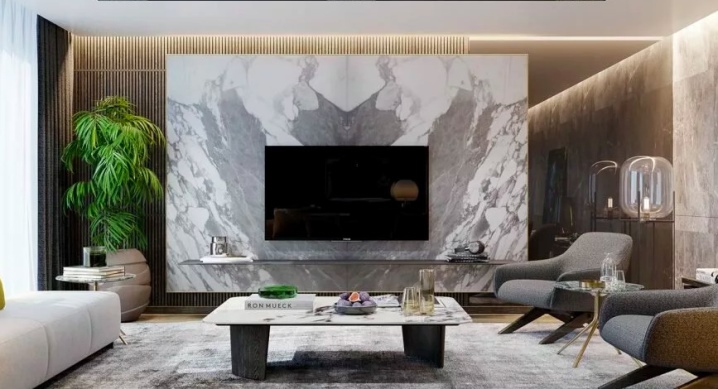
- impressive panoramic windows with a beautiful landscape are organically combined with a large TV screen;
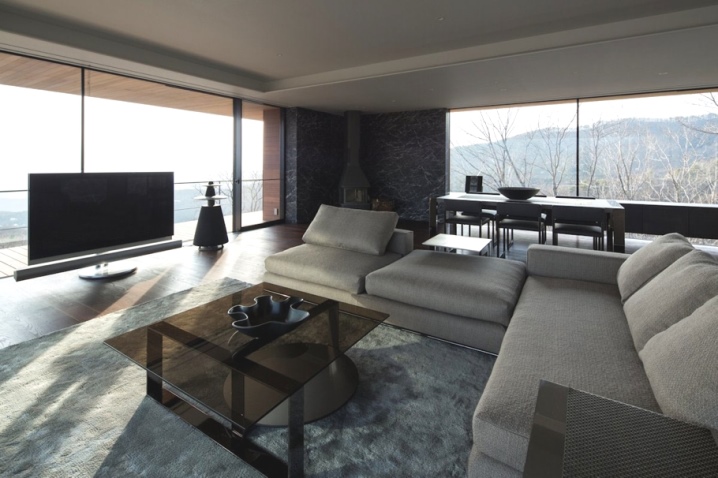
- a full-wall screen assumes that the rest of the room's furnishings look like a home theater;
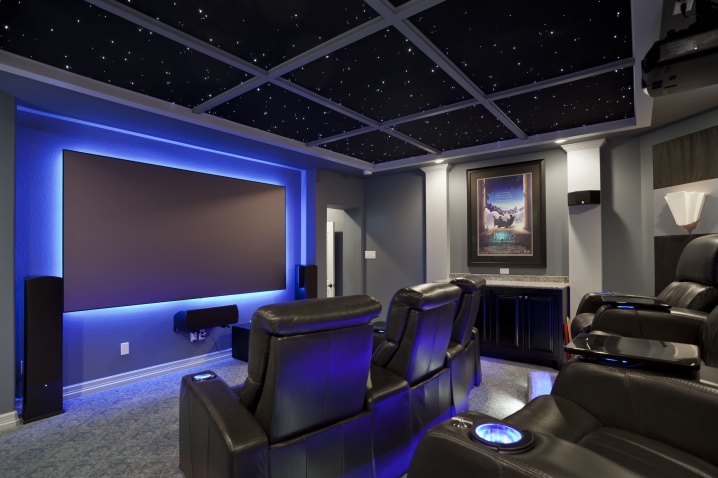
- the large display is perfect for the minimalist style.
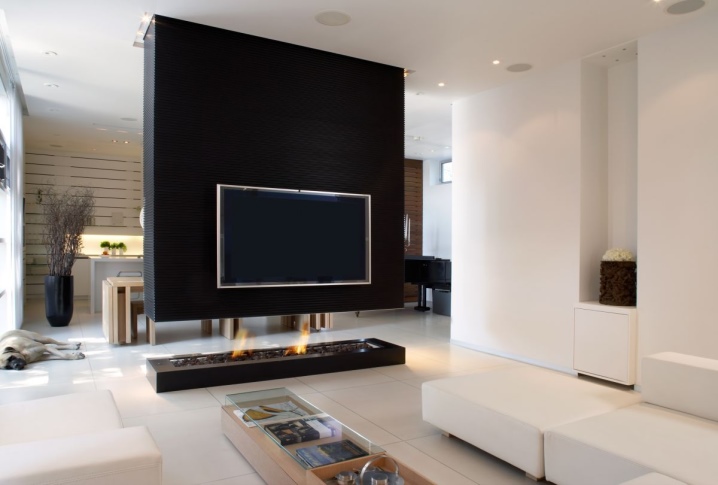
A large TV is appropriate in a spacious room. It raises the image of the owner in the eyes of others and allows you to enjoy the incredible perfection of the image of modern technology.
The video below provides an overview of the large Samsung TV.













The comment was sent successfully.